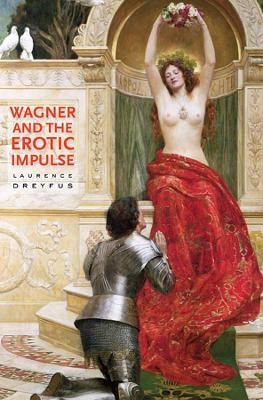
Wagner and the Erotic Impulse
Seiten
2012
Harvard University Press (Verlag)
978-0-674-06429-4 (ISBN)
Harvard University Press (Verlag)
978-0-674-06429-4 (ISBN)
Richard Wagner (1813-1883) was better known in the nineteenth century for his provocative musical eroticism. This title studies the composer and his works, showing how Wagner's obsession with sexuality prefigured the composition of operas such as "Tannhauser", "Die Walkure", "Tristan und Isolde", and "Parsifal".
Though his image is tarnished today by unrepentant anti-Semitism, Richard Wagner (1813–1883) was better known in the nineteenth century for his provocative musical eroticism. In this illuminating study of the composer and his works, Laurence Dreyfus shows how Wagner’s obsession with sexuality prefigured the composition of operas such as Tannhäuser, Die Walküre, Tristan und Isolde, and Parsifal. Daring to represent erotic stimulation, passionate ecstasy, and the torment of sexual desire, Wagner sparked intense reactions from figures like Baudelaire, Clara Schumann, Nietzsche, and Nordau, whose verbal tributes and censures disclose what was transmitted when music represented sex.
Wagner himself saw the cultivation of an erotic high style as central to his art, especially after devising an anti-philosophical response to Schopenhauer’s “metaphysics of sexual love.” A reluctant eroticist, Wagner masked his personal compulsion to cross-dress in pink satin and drench himself in rose perfumes while simultaneously incorporating his silk fetish and love of floral scents into his librettos. His affection for dominant females and surprising regard for homosexual love likewise enable some striking portraits in his operas. In the end, Wagner’s achievement was to have fashioned an oeuvre which explored his sexual yearnings as much as it conveyed—as never before—how music could act on erotic impulse.
Though his image is tarnished today by unrepentant anti-Semitism, Richard Wagner (1813–1883) was better known in the nineteenth century for his provocative musical eroticism. In this illuminating study of the composer and his works, Laurence Dreyfus shows how Wagner’s obsession with sexuality prefigured the composition of operas such as Tannhäuser, Die Walküre, Tristan und Isolde, and Parsifal. Daring to represent erotic stimulation, passionate ecstasy, and the torment of sexual desire, Wagner sparked intense reactions from figures like Baudelaire, Clara Schumann, Nietzsche, and Nordau, whose verbal tributes and censures disclose what was transmitted when music represented sex.
Wagner himself saw the cultivation of an erotic high style as central to his art, especially after devising an anti-philosophical response to Schopenhauer’s “metaphysics of sexual love.” A reluctant eroticist, Wagner masked his personal compulsion to cross-dress in pink satin and drench himself in rose perfumes while simultaneously incorporating his silk fetish and love of floral scents into his librettos. His affection for dominant females and surprising regard for homosexual love likewise enable some striking portraits in his operas. In the end, Wagner’s achievement was to have fashioned an oeuvre which explored his sexual yearnings as much as it conveyed—as never before—how music could act on erotic impulse.
Laurence Dreyfus is Professor Emeritus of Music at the University of Oxford and an Emeritus Fellow of Magdalen College.
| Erscheint lt. Verlag | 6.6.2012 |
|---|---|
| Zusatzinfo | 1 line illustration, 11 music examples |
| Verlagsort | Cambridge, Mass |
| Sprache | englisch |
| Maße | 156 x 235 mm |
| Themenwelt | Literatur ► Biografien / Erfahrungsberichte |
| Kunst / Musik / Theater ► Musik ► Klassik / Oper / Musical | |
| Geschichte ► Allgemeine Geschichte ► Neuzeit (bis 1918) | |
| Geisteswissenschaften ► Geschichte ► Regional- / Ländergeschichte | |
| Geschichte ► Teilgebiete der Geschichte ► Kulturgeschichte | |
| Sozialwissenschaften ► Soziologie ► Gender Studies | |
| ISBN-10 | 0-674-06429-1 / 0674064291 |
| ISBN-13 | 978-0-674-06429-4 / 9780674064294 |
| Zustand | Neuware |
| Informationen gemäß Produktsicherheitsverordnung (GPSR) | |
| Haben Sie eine Frage zum Produkt? |
Mehr entdecken
aus dem Bereich
aus dem Bereich
Giordano Bruno - ein ketzerisches Leben
Buch | Hardcover (2024)
C.H.Beck (Verlag)
29,90 €
das dramatische 16. Jahrhundert
Buch | Hardcover (2024)
Rowohlt Berlin (Verlag)
34,00 €


